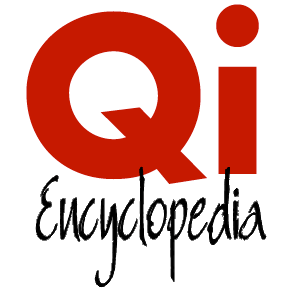
sponsor: Qi Journal
Navigation:
Portals
|
article: The Essence of Qi | author: Master Joseph Yu and Elizabeth Moran | date: 2020-12-12 14:38:18
|
|
The Essence of Qi [1]By Master Joseph Yu
No word in the English language can accurately describe qi (pronounced chee). In popular mythology, qi is synonymous with "energy," a natural or intellectual power that exerts activity. For example, there's solar energy. The sun's rays give light, provide warmth, and help to foster growth. Natural energy resources like oil and gas provide fuel for industry and transportation and heat for our homes. Nutrition affords us physical energy. With sustenance we thrive and feel energetic. Without it, we are drained of our energy. And then, we have electromagnetic energy, one of the fundamental forces of nature, galvanizing and unifying the growth and development of all living forms. So, is qi a source of energy "discovered" by the ancient Chinese? No, qi is not a mysterious energy. Energy, in all of its various forms, is but an aspect of qi we understand through sensory perception (the five senses of sight, smell, taste, hearing, and touch). Actually, qi underlies energy. Qi is an information field that gives energy its impetus to move and change. In fact, qi is the underlying, holistic, and vital force at the center of all things--hyperspace, the sun, a seashell, your pet, and you. If we describe qi as an energy flow, we deny its metaphysical qualities (since these are not recognizable to sensory reality). Intuition, fate, dreams, and hunches--surely, we agree these things are real, but can we prove their existence? The following are some qualities the Chinese attribute to qi which will help to foster a better understanding of this enigmatic concept: 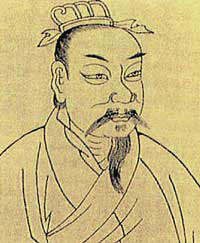 Guan Zhong 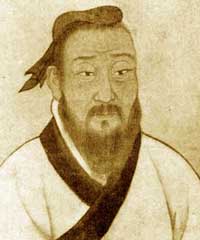 Zuo Qiuming 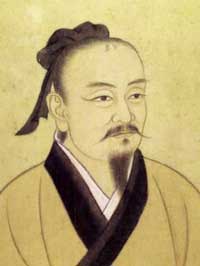 Lu Buwei 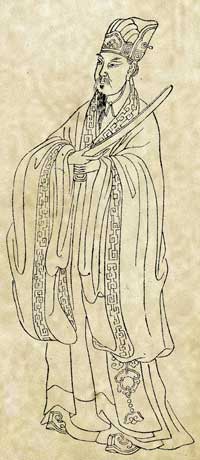 Liu An • Qi can be best characterized as "life breath" or "cosmic breath." It is the underlying and unifying, nourishing and vital, physical and meta-physical life force at the center of all things. • Qi is the holistic and underlying vital force and substance of everyone and everything. • Qi is the non-measurable and imperceptible breath permeating, connecting, and uniting the cosmic, earthly, and physical realms. • Qi is physical. It's the life force acupuncturists seek to activate with their needles and the power martial artists channel to split bricks. • Qi is meta-physical. It is your luck, destiny, and fate. It's your intuition, the sixth sense you feel when you're "onto something." The "vibe" you get about a particular person, place, or thing. • Qi is your spirit, your soul. The concept of qi has not always encompassed such a broad range of qualities. Like anything else, it has changed and evolved over time. Unlike Western science's reliance on logic, reason, and direct experimentation to understand nature's truths, the ancient Chinese primarily used intuitive knowledge, looking within nature's patterns of change.
The Changing Concept of QiThe first documentation of the word qi (probably from the Warring States period 403-221 BCE but possibly as early as the late Spring and Autumn period 591-453 BCE) can be found in the Shuo gua zhuan - The Explanation of the Trigrams. 7th Century BCE. The Guanzi, 6th Century BCE. The Zuozhuan, 5th Century BCE. As the concept evolved, qi extended beyond the earthly (meteorological) and human (physiological) realms to include the influence of the cosmos. This belief was first recorded in the 431 BCE text called the Zhouyu, assembled by Bo Yangfu, the Grand Historian of the state of Zhou. Bo Yangfu relates qi to the downfall of the Zhou dynasty: The qi of Heaven and earth must not lose their proper order. If they extend beyond the proper order, there will be chaos .... There will be an earthquake. In other words, Heaven caused an earthquake to communicate its displeasure with the king. The king's inability to promote harmony and balance within his empire caused chaos and discord, which led to the end of the Zhou dynastic reign. By the end of the Eastern Han dynasty (356-286 BCE), three texts emerged [2] that further define qi: • The Zhuangzi. • The Lushi Chunqiu. • The Huainanzi. Of course, these are not the only texts that describe the nature of qi. Many others exist which are equally important and interesting. For example, consider the Book of Burial or Zangshu. Also, there's the Neijing, The Yellow Emperor's Classic of Internal Medicine.
Qi and the Book of Changes, the I Ching (Yijing)By the time the "Ten Wings" commentaries were attached to what is now known as the Yijing (I Ching or Book of Changes)
The Least You Need To Know• Qi is the underlying and unifying, nourishing and vital, physical and metaphysical life breath at the heart and development of all things. • Qi is not unique to the Chinese. It is known by cultures worldwide. • Many Western physicians believe electromagnetic energy is the holistic and vital force governing the body and environment. This is actually misleading because qi underlies energy. Electromagnetism only describes an aspect of qi. • Acupuncture corrects imbalances of qi within your body. Acupuncture considers how your emotions affect your health. • Feng Shui studies the environment, time, your home and you, and how the qi of each interacts for better health, wealth, and relationships. See www.astro-fengshui.com
Endnotes:[1]^ This entry, with the approval of its authors, was reprinted from The Complete Idiot Guide to the I Ching; [2]^ According to the book Confucianism, Buddhism, Daoism, Christianity and Chinese Culture, VideosMaster Joseph Yu. "Feng Shui Foundation Series 2. Qi," |
